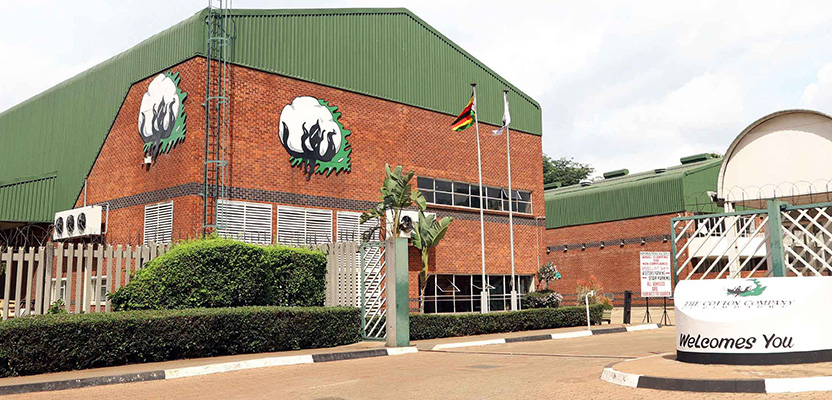The Cotton Company of Zimbabwe intends to start developing own commercial farms, targeting at least 100 000 hectares across the country to anchor production and support cotton value chains, managing director Pious Manamike said.

Currently, Cottco is administering Government’s multi-million dollar inputs programme meant to support vulnerable households.
The programme has been running for the past three seasons and has resuscitated the cotton industry after boosting output from a record low of 28 000 tonnes in 2015 — the lowest in nearly two decades — to 142 000 tonnes last year.
Nearly 400 000 households are currently benefiting from the inputs support programme with each farmer getting planting seed, fertilisers and chemicals among others.
The Government intervened when it became apparent that the industry was heading for collapse and this was partly due to migration of farmers to cash crops like tobacco.
The exit of private companies such as Cargill, which cited persistent losses largely resulting from poor recoveries of invested funds also resulted in production taking a steep decline.
Cottco has already identified land for the new project, which will be largely under irrigation.
“In this regard we are cropping up large tracts of virgin land in Mashonaland Central, Kanyemba area (along the Zambezi Valley), Masvingo, and also large tracts of land in Matabeleland North in Binga area,” he said.
“We are looking to get a minimum of 100 000ha that should be irrigated and that should be able to anchor production to support the value chain within the cotton to clothing sector.”
The latest development is likely to boost the cotton industry, which of late has attracted strong interest from potential investors.
With proper regulation of the industry, analysts believe private participation could be critical to boost current production levels.
Speaking at a Cottco stakeholders meeting in Sanyati in Mashonaland West Province on Tuesday, Cotton Producers and Marketers Association chairman Mr Steward Mubonderi told farmers that the revival of the cotton industry was critical as it would help support the entire cotton value chains, including the textile industry.
Mr Mubonderi noted that cotton farming was “a low hanging fruit” with potential to generate the much needed foreign currency. Last year, Zimbabwe exported ginned cotton, which at some point was referred to as the white gold, worth nearly US$90 million.
“Government needs foreign currency and cotton will bring in the much desired foreign currency. The Government also wants to open companies like David Whitehead, Kadoma Textiles and others with potential of generating hundreds of thousands of jobs,” he said.
Speaking at the same function, Cottco agronomist Mr Collin Nyawenze explained how the Presidential Scheme resulted in the resuscitation of cotton production in Sanyati.
“From 2016 backwards, Sanyati as a business unit was closed,” he said. “We were left with three business units in Chiredzi, Muzarabani and Gokwe. In 2017 we discovered that Sanyati was rising and we decided to make it a business unit on its own.
“In 2018, of the 127 000 tonnes bought by Cottco, 27 000 tonnes were from Sanyati. This justifies the opening of Sanyati as an independent business unit for Cottco.”
Cottco held similar stakeholder meetings in Gokwe and Muzarabani ahead of the 2019 marketing season. The validation exercise to determine projected output is still ongoing.
Meanwhile, farmers have implored Government to honour their promise and pay part of their proceeds in foreign currency to cushion them from erosion of RTGS dollars values.
The Reserve Bank of Zimbabwe stipulated that cotton farmers will be paid 50 percent of their proceeds in foreign currency while the remainder will be paid in RTGS dollars.
“We look forward to Cottco to give us a stable US dollar price,” Sanyati farmer Onias Mayavo said. The Government pegged the price of cotton at $1,95 per kg, up from 47c last year. The Herald






